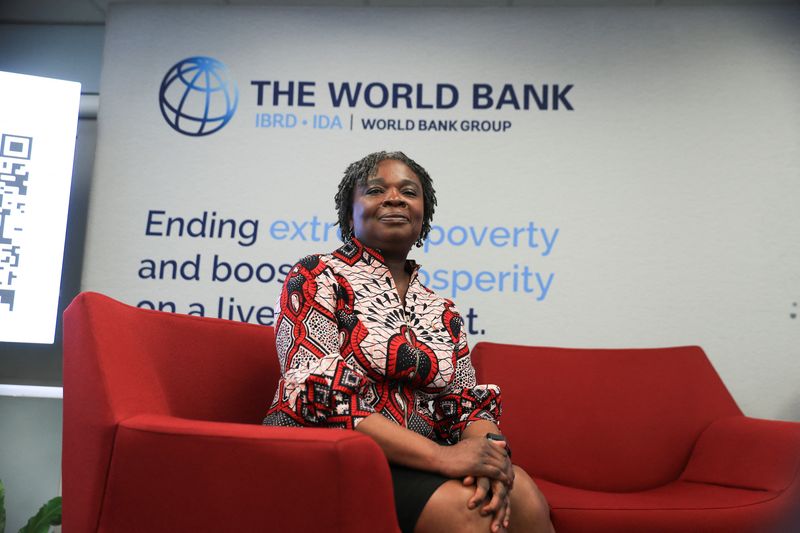
By Nyasha Chingono
HARARE (Reuters) – Zimbabwe needs to make its fiscal and monetary policies more predictable to instill confidence in its depreciating currency, a senior World Bank official said on Friday.
It could make progress by moving away from the central bank’s “quasi-fiscal operations,” Victoria Kwakwa, the World Bank’s regional vice president for Eastern and Southern Africa, told Reuters.
She did not specify what those operations were, but the International Monetary Fund said last month that the central bank must cut its non-core activities, which include printing money and borrowing to lend to the government.
The Zimbabwean dollar has lost more than 60% of its value against the US dollar this year, while annual inflation stands at 47.6%, in a country still plagued by memories of hyperinflation under longtime former leader Robert Mugabe.
“That’s the crux of the problem, the lack of trust,” Kwakwa said.
“And every time people get (currency), they try to get rid of it to get something else, and so it continually loses value.”
The local currency was reintroduced in 2019 after a decade of dollarization, but it quickly lost its value and soon after authorities re-allowed the use of foreign currency in domestic transactions.
The central bank and finance ministry said last month they were working on measures to stabilize the currency and were considering pegging the exchange rate to the price of gold, among other possible measures.
“Policy predictability… the improvements that come from moving away from quasi-fiscal operations will all help build confidence,” Kwakwa said.
She said the World Bank is “committed” to the process, which has been ongoing since 2022, for Zimbabwe to repay billions of dollars of debt owed to Zimbabwe and other international creditors.
Meanwhile, Kwakwa said she was “delighted” that China and India had signed debt restructuring agreements with Zambia, which the country’s president announced last week had raised hopes it could be close to ending its more than three-year default .
“With official creditors eliminated, the government now has a chance to focus more on reaching an agreement with commercial creditors. And we hope that this will also happen in the near future,” she said.


